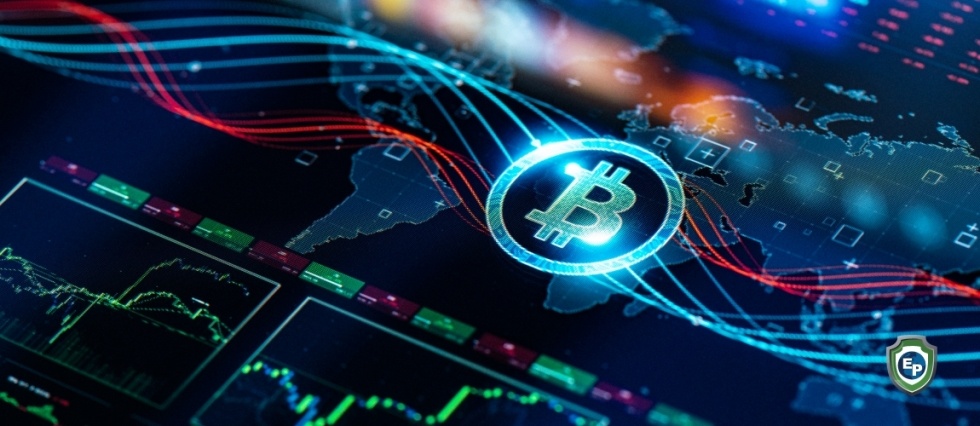Blockchain Technology: Implications for Global Trade and Law
What exactly is the purpose of blockchain technology, and what are the practical and legal implications for international trade? Come take a look at our article to find out.

Blockchain is a database technology. Contrary to other database technologies, it generally does not rely on a centralized entity but on a decentralized ledger. That means it allows users to interact with each other directly without involving any third parties such as banks, agencies, or platform providers.
It also allows for a high degree of automation, as so-called smart contracts can execute predefined actions once certain conditions are met. For example, an importer could deposit money into a blockchain-based escrow wallet. A smart contract then releases the payment to the exporter once he or she uploads documents to the blockchain, proving the shipment.
What Are the Practical Implications for Global Trade?
Blockchain could change international trade in many ways. Most importantly, it could cut out many intermediaries that exporters and importers today need to facilitate transactions.
Suppose you run a car exporting company; you most likely work with trade finance agencies specializing in international trade risk management. With blockchain, you won’t need those trade finance intermediaries anymore.
Furthermore, blockchain could enable more efficient documentation, such as proof of origin or shipment. Importers and exporters could upload documents to the blockchain. End users could also access these documents and verify the origin of goods through a simple QR code printed on the packaging.
Blockchain could make trade more transparent, traceable, and secure for all involved parties. It could also make global trade cheaper, as all these intermediaries in the value chain earn commissions.

What Are the Legal Implications for Global Trade?
The increasing use of blockchain in international trade also brings several new legal challenges. For example, many jurisdictions have yet to develop a framework to govern transactions made with blockchain-based cryptocurrencies.
There are also questions about ownership rights. For example, a blockchain-based token could include a right to a real estate asset or any other real-world asset. However, most jurisdictions have not yet clarified whether it is enough to own the token to have a right to the underlying asset.
One of the first jurisdictions to introduce legislation explicitly for blockchain technology was Liechtenstein, which introduced the so-called Blockchain Act in 2020. The goal is to create legal certainty around blockchain applications and global trade. It remains to be seen how other countries will address the issue in the future.
Learn More with Export Portal
At Export Portal, we believe in being a truly comprehensive international trade marketplace. That includes helping our users learn everything they need to know about trade. Check out the best export platform today!


















Comments 2